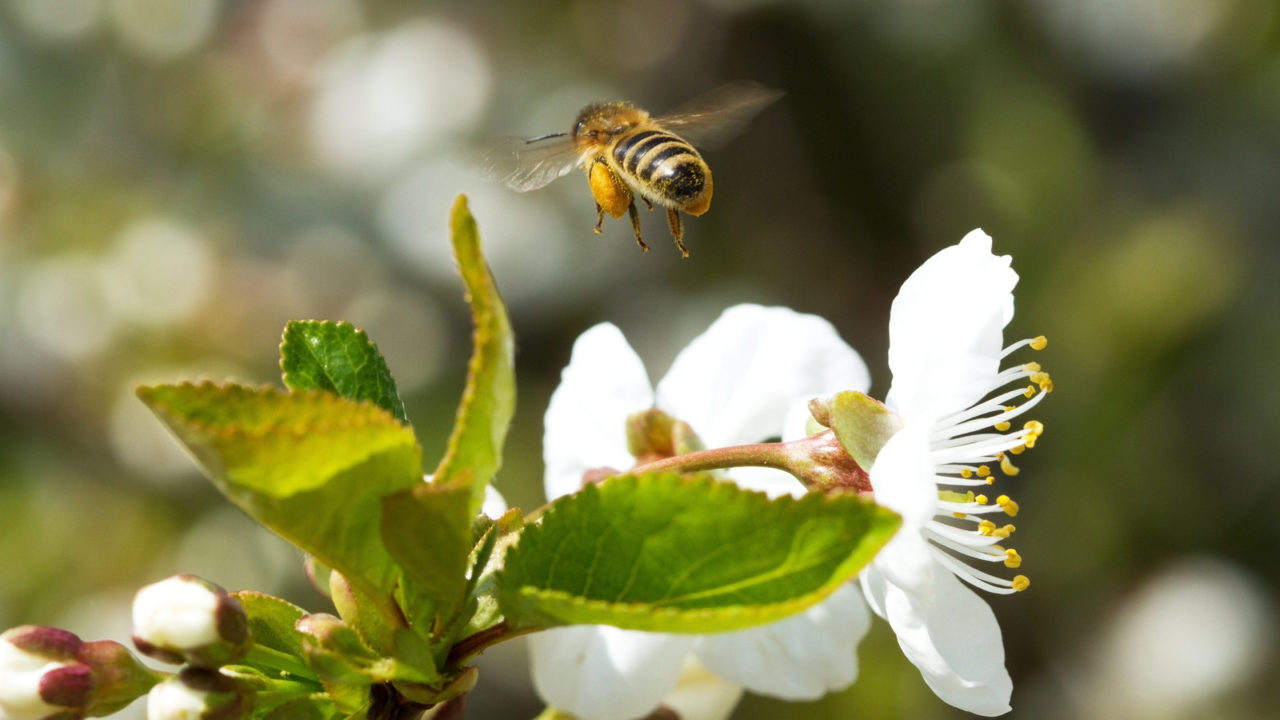Researchers from University College Dublin (UCD) and Royal Holloway, University of London are calling for urgent research to be carried out into the impact on bees of ‘inert’ ingredients in pesticides.
The team of scientists has conducted the first systematic review of every piece of scientific evidence currently available on the effects of inert pesticide ingredients on bee health.
What are inert ingredients?
These are ingredients in pesticide formulations that make the main, active ingredient more effective. They were not previously thought to be harmful to bees.
But this review highlights that some of the substances in pesticides are detrimental to bee health, and it reveals large knowledge gaps surrounding the impact of these ingredients.
The team discovered just 19 studies that tested the effects of inert ingredients on bee health, with only three studies testing inert ingredients on bee species other than honey bees.
In their review paper, the researchers argue that bees are exposed to inert ingredients frequently, making their toxicity very important.
Not farmers’ fault
UCD’s Dr. Edward Straw, formerly of the Department of Biological Sciences at Royal Holloway and lead author of the review, highlighted that although these inert ingredients are harmful to bees, farmers are not at fault.
“All the information they’re given says they’re safe,” Dr. Straw told Agriland.
“The fault would lie with the government for not requiring pesticide companies to do more thorough testing, and for not requiring more transparency as to what the ingredients are,” he said.
He said it is also crucial that this isn’t seen as another attempt by environmentalists to ban more substances.
He explained:
“Because these inert ingredients aren’t active ingredients, the pesticide companies could quite easily remix the substances to be safe for bees and still be effective at controlling pests.
“That way farmers can still spray the same active, but they can benefit from more pollination from a healthier bee population.”
He added that farmers care deeply about the land they manage and its health. Better testing of pesticides helps farmers have confidence that the substance they are using are safe for bees, who are crucial in bolstering crop yields.”
Existing research
Most of the existing research on the effects of pesticides on bees looks at the impact of active pesticide ingredients.
But there are thousands of species of bees for which there is no information about the effect of these inert ingredients.
“In the studies we looked at, inert ingredients were found to cause death and damage to bees through multiple exposure routes, to interact with other stressors like viruses and cause bees to drown,” said Dr. Straw.
One group of inert ingredients – adjuvants – are not tested on bees by governments at all, despite research showing they can be harmful. The other group – co-formulants – only undergo superficial testing, he explained.
Professor Elli Leadbeater, from the Centre for Ecology, Evolution and Behaviour in the Department of Biological Sciences at Royal Holloway, also commented.
“Our review highlights the lack of mitigation in place to protect bees from these co-formulants and adjuvants and we want to push for research efforts to address the knowledge gap we’ve identified here,” said Prof. Leadbeater.
“If so-called ‘inert’ ingredients are, in fact, detrimental to bee health, their potential role in widespread bee declines needs urgent assessment.”
